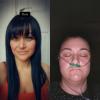Gastric Bypass Vs Sleeve in Antalya
Calculate Your Cost / Price
After undergoing bariatric surgery, many patients experience some difficulties adjusting to their new lifestyle. This is to be expected. Life after bariatric surgery involves a lot of changes to your diet, your activity level, and your body. This can lead to mood swings, irritability, and even low moods Caffeine can be a stomach irritant, causing discomfort in the abdominal area which can, in turn, complicate early recovery after bariatric surgery. Caffeinated food and drinks can cause weight regain.
Foods to Avoid After Bariatric Surgery Turkey
- Red meat that's tough or dry.
- Greasy, high fat foods.
- Heavily seasoned or spicy foods.
- Sugar alcohols, such as erythritol, glycerol, mannitol, sorbitol and xylitol.
- Foods reheated in the microwave.
It is normal to see weight gain after bariatric surgery because patients still live in an obesogenic environment, and the individual's or surgery's ability to control all factors is limited. Body fat is also subject to metabolic pressures to regain lost weight
In addition, avoid the ancillary foods that can be even worse than the fast-food entrée itself. Sodas, french fries, other fried sides and even salad dressings can all contain tons of fat, sugar and ultimately calories Since salads are typically made of raw fruits and vegetables they can be more difficult to digest. And since you had bariatric surgery your ability to digest foods has changed and will take some time to adjust Always consume lean protein first, non-starchy vegetables second, and high-fiber carbs or a healthy fat source last. Try to consume at least 64 ounces of hydrating fluids. Avoid added-sugar drinks, carbonation, and excessive caffeine. Consume alcohol in moderation. The altered bowel motility and absorption as a result of weight-loss surgery also can result in more or smellier gas. Noise associated with gas can be from the abdomen (bowel sounds) or with the passage of gas through the anus (or an ostomy). In addition, avoid the ancillary foods that can be even worse than the fast-food entrée itself. Sodas, french fries, other fried sides and even salad dressings can all contain tons of fat, sugar and ultimately calories Can you fly after gastric sleeve surgery? There is no reason why you should not fly as normal with a gastric sleeve. We do not recommend that sleeve patients fly short haul (e.g. Europe) within 7 days of their surgery and that they wait 21 days before flying medium to long haul. On average, a mini gastric bypass surgery can take about 45 minutes to an hour to perform, however keep in mind that it will differ according to each patient and surgeon Bread, Rice, and Pasta - Because of the starchy nature of bread, rice, and pasta, after your surgery, they can form a paste in your throat that is hard to swallow without liquid. In some cases, they can block the stoma, the hole to the pouch that is your new stomach. Currently, bariatric surgery is the most effective treatment for severe obesity and its metabolic complications; however, 1535% of the patients that undergo bariatric surgery do not reach their goal for weight loss Longer term risks and complications of gastric bypass can include: Bowel obstruction. Dumping syndrome, causing diarrhea, nausea or vomiting On average, a mini gastric bypass surgery can take about 45 minutes to an hour to perform, however keep in mind that it will differ according to each patient and surgeon Over the first three months, patients can expect to lose about 33 percent of their excess weight. Six months post-surgery, patients can anticipate shedding half their extra weight. It is normal to see weight gain after bariatric surgery because patients still live in an obesogenic environment, and the individual's or surgery's ability to control all factors is limited. Body fat is also subject to metabolic pressures to regain lost weight Since salads are typically made of raw fruits and vegetables they can be more difficult to digest. And since you had bariatric surgery your ability to digest foods has changed and will take some time to adjust Over the first three months, patients can expect to lose about 33 percent of their excess weight. Six months post-surgery, patients can anticipate shedding half their extra weight. After undergoing bariatric surgery, many patients experience some difficulties adjusting to their new lifestyle. This is to be expected. Life after bariatric surgery involves a lot of changes to your diet, your activity level, and your body. This can lead to mood swings, irritability, and even low moods Caffeine can be a stomach irritant, causing discomfort in the abdominal area which can, in turn, complicate early recovery after bariatric surgery. Caffeinated food and drinks can cause weight regain.
Always consume lean protein first, non-starchy vegetables second, and high-fiber carbs or a healthy fat source last. Try to consume at least 64 ounces of hydrating fluids. Avoid added-sugar drinks, carbonation, and excessive caffeine. Consume alcohol in moderation. Bread, Rice, and Pasta - Because of the starchy nature of bread, rice, and pasta, after your surgery, they can form a paste in your throat that is hard to swallow without liquid. In some cases, they can block the stoma, the hole to the pouch that is your new stomach. Can you fly after gastric sleeve surgery? There is no reason why you should not fly as normal with a gastric sleeve. We do not recommend that sleeve patients fly short haul (e.g. Europe) within 7 days of their surgery and that they wait 21 days before flying medium to long haul.
Always consume lean protein first, non-starchy vegetables second, and high-fiber carbs or a healthy fat source last. Try to consume at least 64 ounces of hydrating fluids. Avoid added-sugar drinks, carbonation, and excessive caffeine. Consume alcohol in moderation. The altered bowel motility and absorption as a result of weight-loss surgery also can result in more or smellier gas. Noise associated with gas can be from the abdomen (bowel sounds) or with the passage of gas through the anus (or an ostomy). In addition, avoid the ancillary foods that can be even worse than the fast-food entrée itself. Sodas, french fries, other fried sides and even salad dressings can all contain tons of fat, sugar and ultimately calories Can you fly after gastric sleeve surgery? There is no reason why you should not fly as normal with a gastric sleeve. We do not recommend that sleeve patients fly short haul (e.g. Europe) within 7 days of their surgery and that they wait 21 days before flying medium to long haul. On average, a mini gastric bypass surgery can take about 45 minutes to an hour to perform, however keep in mind that it will differ according to each patient and surgeon After undergoing bariatric surgery, many patients experience some difficulties adjusting to their new lifestyle. This is to be expected. Life after bariatric surgery involves a lot of changes to your diet, your activity level, and your body. This can lead to mood swings, irritability, and even low moods Caffeine can be a stomach irritant, causing discomfort in the abdominal area which can, in turn, complicate early recovery after bariatric surgery. Caffeinated food and drinks can cause weight regain.
On average, a mini gastric bypass surgery can take about 45 minutes to an hour to perform, however keep in mind that it will differ according to each patient and surgeon Bread, Rice, and Pasta - Because of the starchy nature of bread, rice, and pasta, after your surgery, they can form a paste in your throat that is hard to swallow without liquid. In some cases, they can block the stoma, the hole to the pouch that is your new stomach. Pizza and pasta are normally favorites, but after bariatric surgery, they should be consumed in moderation. If you are having pizza, order a thin crust and add veggies and lean meats, such as chicken or Canadian bacon. Overall, you should choose a menu item that is centered on protein, like grilled chicken or seafood Weight loss before surgery was associated with readmission for abdominal pain and increases in urinary tract and surgical site infections, researchers found. The tradition may also be tied to insurance carriers who require weight loss and counseling before surgical treatment. The singer-songwriter lost 100 pounds in two years by lifting weights and doing circuit training. "So I do my weights in the morning, then I normally hike or I box in the afternoon, and then I go and do my cardio at night," she said. "I'm an athlete," Adele said Currently, bariatric surgery is the most effective treatment for severe obesity and its metabolic complications; however, 1535% of the patients that undergo bariatric surgery do not reach their goal for weight loss
Bridge Health Travel Turkey | Antalya
-
£ 1580£ 1450GASTRIC BALLOON PROCEDURE PACKAGE
Give a call to learn more about what’s included and to come up with a tailored plan if you need unique accommodations that are not listed below.
- Airport
- Hotel
- Hospital transfer
- The balloon is placed via endoscopy, the procedure takes 15-20 minutes and you are discharged after 2-3 hours. It is enough to stay here for 1 night.
- Blood samples & x-rays
- 5 year follow up
-
£ 2750£ 2550GASTRIC SLEEVE PACKAGE
GASTRIC SLEEVE PACKAGE COST TURKEY / ANTALYA
Give a call to learn more about what’s included and to come up with a tailored plan if you need unique accommodations that are not listed below.- Airport
- Hotel
- Hospital transfer
- 4 day stay at hospital
- Blood samples & x-rays
- 5 year follow up
-
£ 3100£ 2900MINI GASTRIC BYPASS PACKAGE
MINI GASTRIC BYPASS PACKAGE TURKEY
Give a call to learn more about what’s included and to come up with a tailored plan if you need unique accommodations that are not listed below.- Airport
- Hotel
- Hospital transfer
- 4 day stay at hospital
- Blood samples & x-rays
- 5 year follow up















